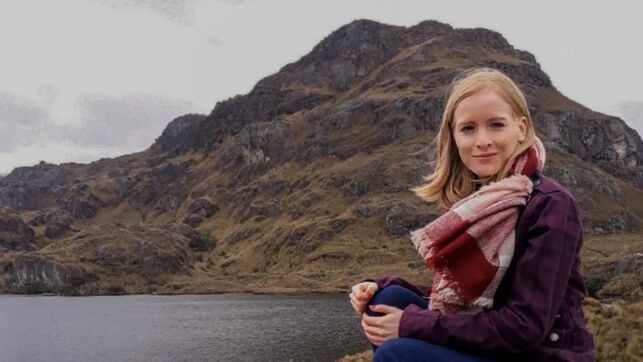Inclusive higher education for people with disabilities


Santander’s IV Study on University and Disability aims to measure the rate of inclusion of people with disabilities in the Spanish university system, and canvassed the views of over 1,700 students with disabilities in 2019.

This year Amanda Loayza finished her teaching degree at the University of Valencia. She is 27 years old and has a visual disability. She is also one of the 1,720 participants in the Study on University and Disability that we publish with the support of the Spanish Committee of Representatives of People with Disabilities (Cermi), ONCE Foundation and the Spanish Royal Board on Disability, in partnership with the CRUE.
The report, which is published every two years, aims to measure the rate of inclusion of people with disabilities in the Spanish university system, and track the progress achieved since the project began in 2011.
Students with disabilities highlighted various aspects that would improve the help available for people with disabilities at universities, which include more and better information, assistance with equal opportunity needs in the classroom and greater support for entering the job market. They also demand more grants and financial aid, and better information and training for teachers on the subject of disability.
The students would like to see more empathy and awareness from the university community generally, with a view to fostering a more inclusive and less paternalistic views of their differences.
Inclusion in classrooms: we're all part of the class
Sonia Viñas, director of Fundacion Universia, pointed out that “researching is listening, that's why interaction with the environment is so important. This means contrasting hypotheses about daily activities and sometimes discovering things that make it possible to offer and achieve innovation in education and guarantee the right to an education that educates”.
The report referred to the United Nations Sustainable Development Goal SDG 4, to “ensure inclusive and equitable quality education for all. As a country we must be able to highlight the importance of our achievements in the area of inclusive higher education. Education can only be of good quality if it is inclusive. But even more, education, if it is not inclusive, is not education”.
This study involved 72 universities, which account for 96% of the students with disabilities in the Spanish university system.
Through the Fundacion Universia, Banco Santander supports the inclusion of people with disabilities through higher education and professional development in a society that respects diversity.







